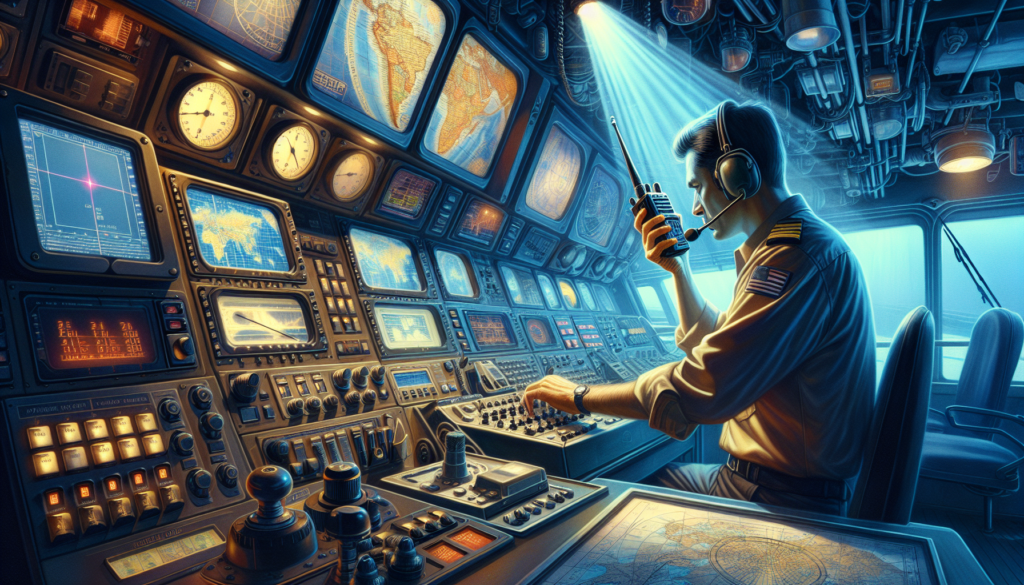Exploring the Depths of Marine Radio Communication
Imagine being out at sea, surrounded by vast waters with no land in sight. In such situations, effective communication becomes not just a convenience but a necessity. This is where marine radio communication plays a crucial role. Whether it’s for navigation, safety, or simply staying connected, radio communication is a lifeline for those out on the open ocean.
In this comprehensive guide, we delve into the world of marine radio communication, exploring its history, technology, uses, and importance in the maritime industry. Join us as we navigate through the waves of information and uncover the secrets of this essential tool for seafarers.
The Evolution of Marine Radio Communication
Marine radio communication has a long and storied history, dating back to the early days of radio technology. The first successful radio transmission over water took place in 1899 when Guglielmo Marconi sent a message across the English Channel. This breakthrough paved the way for the development of maritime communication systems, revolutionizing the way ships communicated with each other and with shore stations.
Over the years, radio technology has evolved significantly, from the use of Morse code to voice communication and, more recently, digital data transmission. Today, modern vessels are equipped with sophisticated radio equipment that allows for seamless communication over long distances, ensuring the safety and efficiency of maritime operations.
The Role of Marine Radio Communication
Marine radio communication plays a vital role in ensuring the safety and security of vessels at sea. From weather updates to distress calls, radios are used to convey critical information that can mean the difference between life and death in emergency situations. In addition to safety, radios are also used for navigation, coordination between ships, and general communication purposes.
One of the key functions of marine radio communication is to enable ships to comply with international regulations, such as the International Convention for the Safety of Life at Sea (SOLAS). These regulations require vessels to have reliable communication systems in place to ensure their safety and the safety of others at sea.
The Technology Behind Marine Radios
Modern marine radios are equipped with a range of advanced features that make communication at sea easier and more efficient. These radios operate on specific frequencies allocated for maritime use, ensuring clear and reliable communication between ships and shore stations. They are also designed to withstand the harsh marine environment, with features such as waterproofing and shock resistance.
In addition to voice communication, modern marine radios also support digital data transmission, allowing for the exchange of messages, weather reports, and other information. This technology has revolutionized the way ships communicate at sea, enabling faster and more accurate information exchange.
Applications of Marine Radio Communication
The applications of marine radio communication are diverse and far-reaching, ranging from routine communication between ships to emergency distress calls. In addition to safety and navigation, radios are also used for operational purposes, such as coordinating cargo loading and unloading, scheduling maintenance tasks, and communicating with port authorities.
Another important application of marine radio communication is in search and rescue operations. In emergency situations, radios are used to transmit distress signals, allowing nearby vessels or rescue agencies to locate and assist ships in distress. This quick and effective communication can save lives and prevent maritime disasters.
The Future of Marine Radio Communication
As technology continues to advance, the future of marine radio communication looks promising. New developments in satellite communication, digital data transmission, and artificial intelligence are poised to revolutionize the way ships communicate at sea. These innovations will not only enhance safety and efficiency but also enable new applications and services that were previously unthinkable.
One of the key trends in marine radio communication is the integration of radios with other onboard systems, such as navigation equipment and engine monitoring systems. This integration will enable seamless communication and data exchange, leading to improved decision-making and operational efficiency.
Expert Opinions on Marine Radio Communication
According to maritime experts, marine radio communication is an essential tool for ensuring the safety and security of vessels at sea. Captain John Smith, a veteran seafarer with over 30 years of experience, emphasizes the importance of reliable communication systems on board ships. “In emergency situations, having a functioning radio can make all the difference,” says Captain Smith.
Dr. Jane Doe, a marine communications specialist, believes that the future of marine radio communication lies in digital technology. “Digital data transmission is revolutionizing the way ships communicate, allowing for faster and more accurate information exchange,” says Dr. Doe. “In the coming years, we can expect to see even more innovations in this field.”
Common Misconceptions about Marine Radio Communication
Despite its importance, marine radio communication is often misunderstood by the general public. One common misconception is that radios are only used for emergency situations, when in fact they are used for a wide range of purposes, from routine communication to navigation and operational tasks.
Another misconception is that marine radios are outdated technology, when in fact they are continuously evolving to meet the changing needs of the maritime industry. Modern marine radios are equipped with advanced features that make communication at sea faster, easier, and more reliable than ever before.
Conclusion
In conclusion, marine radio communication is a vital tool for ensuring the safety, security, and efficiency of maritime operations. From its humble beginnings in the early days of radio technology to the advanced systems used on modern vessels, radios have played a crucial role in connecting ships at sea and enabling communication in the most challenging environments.
As we look to the future, the continued development of marine radio communication technology promises to bring even greater advancements in safety, efficiency, and connectivity at sea. By staying at the forefront of these innovations, the maritime industry can ensure that ships remain safe, secure, and connected in an ever-changing world.
To wrap things up, it’s clear that marine radio communication is not just a tool but a lifeline for those who venture out into the vast expanse of the ocean. With its ability to connect ships, enable communication, and ensure safety, radios will continue to play a crucial role in the maritime industry for years to come.



